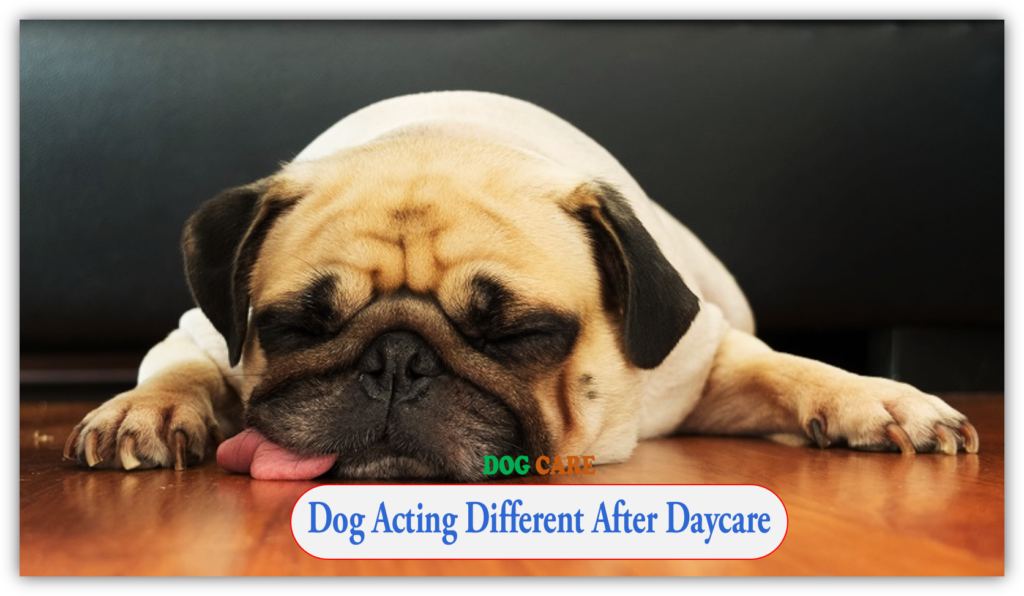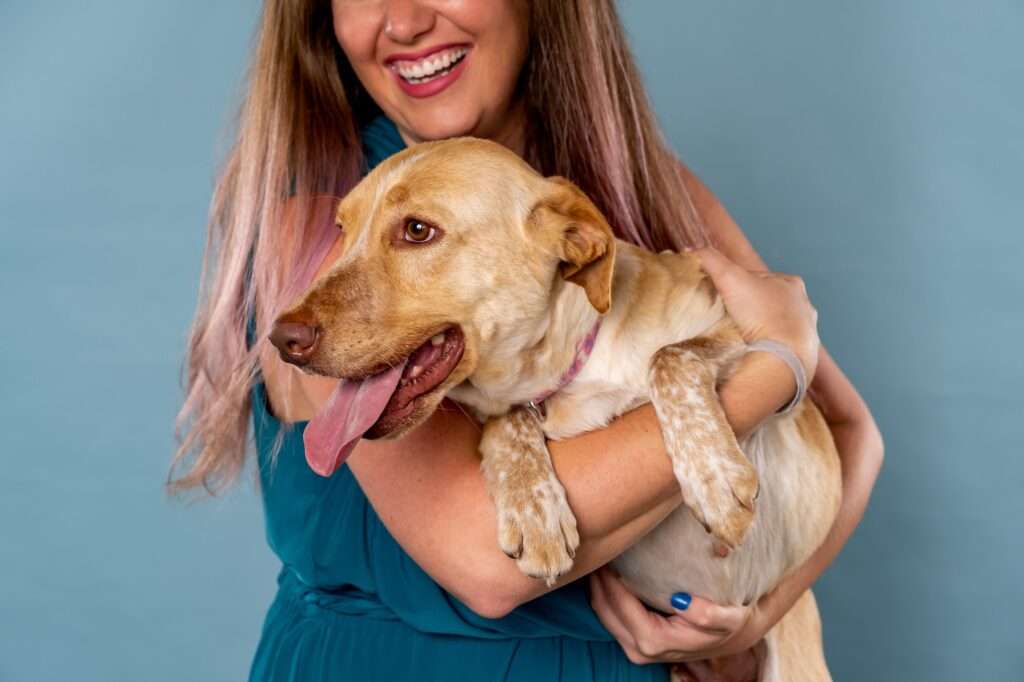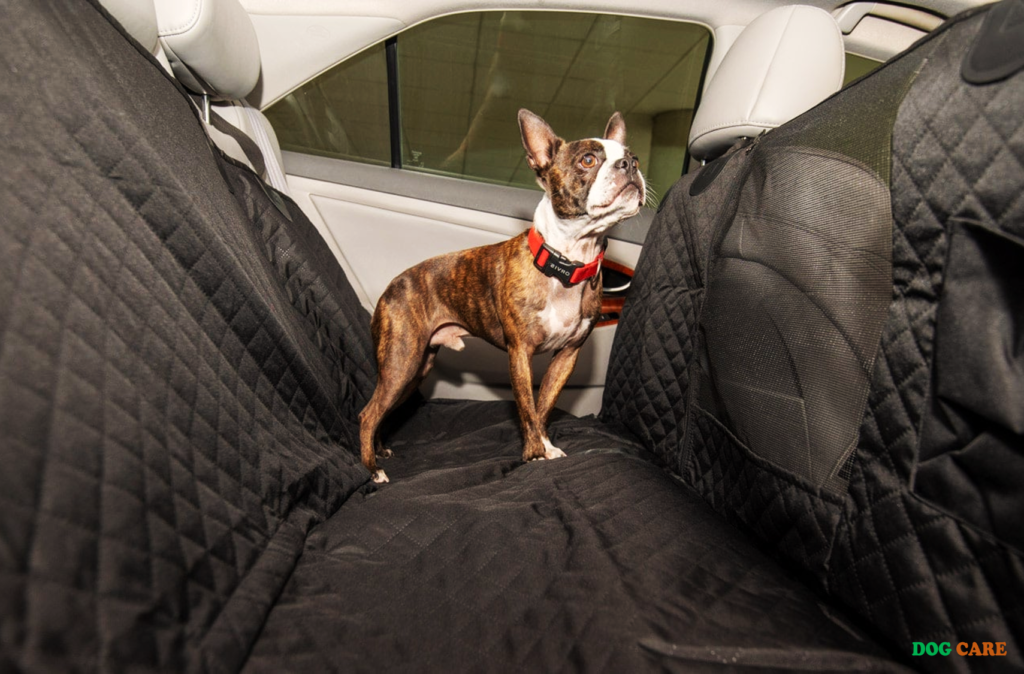Dog acting different after daycare? It is common for dogs to exhibit changes in behavior after attending daycare due to increased stimulation and socialization.
Exposing dogs to new environments, playmates, and activities can lead to heightened excitement, exhaustion, or even anxiety. These changes can manifest in various ways, such as excessive energy, restlessness, or unusual sleeping patterns. Additionally, dogs may display increased clinginess, separation anxiety, or even exhibit aggression towards familiar individuals or other animals.
Understanding and supporting your dog through this adjustment period is crucial, as it can help them acclimate better and feel more comfortable transitioning from daycare to home. By providing familiar routines, ample rest, and gentle guidance, you can help your dog transition smoothly and restore their usual behavior.

The Rise Of Dog Daycare
Over the years, dog daycare has seen a significant rise in popularity among pet owners. Gone are the days when dogs were left alone at home for long hours, leading to boredom, stress, and destructive behavior. Today, more and more dog owners are recognizing the benefits of dog daycare for their furry companions.
The Growing Popularity Of Dog Daycare
Dog daycare has become a go-to option for pet owners who want to provide their dogs with a safe and stimulating environment when they are away. The concept of dog daycare originated from the idea of children’s daycare centers, and its popularity quickly spread among pet owners looking for alternatives to leaving their dogs at home alone.
One of the major reasons for this rise in popularity is the growing awareness among dog owners about the impact of excessive alone time on their canine friends. Dogs are social animals, and they thrive on human interaction and companionship. Leaving them alone for extended periods can lead to separation anxiety and other behavioral problems.
Moreover, the busy lifestyles of dog owners have contributed to the demand for dog daycare services. With demanding jobs and limited free time, many pet owners struggle to provide their dogs with sufficient exercise and mental stimulation. Dog daycare offers a convenient solution by providing a supervised and structured environment where dogs can socialize, play, and engage in various activities.
Benefits Of Dog Daycare
Dog daycare offers numerous benefits that contribute to the overall wellbeing of dogs. Let’s take a closer look at some of them:
- Socialization: Dogs are naturally social creatures, and dog daycare provides ample opportunities for them to interact with other dogs and humans. This socialization helps them develop proper behavior and communication skills, reducing the likelihood of aggression or fear towards other dogs or people.
- Exercise and Mental Stimulation: Dog daycare ensures that dogs get regular exercise and mental stimulation through various activities, such as playing fetch, going for walks, or participating in agility courses. This helps keep them physically fit and mentally sharp.
- Relieves Boredom and Anxiety: Being confined to the same environment for long hours can lead to boredom and anxiety in dogs. Dog daycare provides them with a change of scenery, new experiences, and constant companionship, which alleviates boredom and reduces anxiety.
- Supervised Environment: Dog daycare centers are staffed with trained professionals who monitor the dogs’ behavior, ensuring their safety and well-being. This supervision gives pet owners peace of mind, knowing that their dogs are in good hands.
- Helps with Training: Dog daycare centers often offer training programs or reinforce existing training. The structured environment and positive reinforcement techniques used in daycare can help dogs learn or improve upon basic obedience commands.
With these benefits in mind, it’s no wonder why dog daycare has become such a popular option for dog owners. It provides a win-win situation, allowing dogs to have an enjoyable and fulfilling day while giving their owners the assurance that their beloved pets are well cared for.
The Transformation Process
After a day at daycare, you may notice your dog’s behavior has changed. This transformation process is normal and can occur due to socialization, exercise, and stimulation during their time at daycare. It’s a sign that they had a fun and tiring day.
Before And After: An Amazing Metamorphosis
Dogs are known for their ability to adapt, but have you ever observed the visible changes they undergo after a day at daycare? It’s truly remarkable how their behavior and appearance can transform in just a few short hours. This blog post will explore the fascinating process of a dog’s metamorphosis after attending daycare, highlighting the physical changes that can occur.
Physical Changes After Dog Daycare
Daycare can be an action-packed and energetic experience for our furry friends. Here are some of the noticeable physical changes you might observe in your dog after a fun-filled day at daycare:
1. Enhanced Muscle Tone: Dog daycare is full of exciting activities that require your pup to move and play. This increased physical exertion can lead to improved muscle tone, resulting in a leaner and more defined physique.
2. Increased Energy: Spending the day engaging in stimulating activities and socializing with other dogs can leave your furry companion feeling quite lively. You may notice an increase in their energy levels, evident through their bouncy step and playful demeanor.
3. A Freshly Bathed Coat: Many dog daycares offer grooming services, which means your pup can return home with a clean and fresh-smelling coat. After a day of romping around with their pals, a bath is just what your dog needs to feel rejuvenated and ready for cuddle time.
4. Vibrant Eyes: The excitement and social interaction at daycare can bring a sparkle to your dog’s eyes. Their eyes may appear brighter and more vibrant, reflecting the joy and happiness they experienced throughout the day.
5. Well-Manicured Nails: As dogs engage in various activities, their nails naturally wear down. Daycare offers ample opportunities for your pup to run, jump, and explore, leading to naturally trimmed nails. This means less hassle for you when it comes to nail maintenance.
6. Improved Social Skills: Regular participation in daycare can foster positive socialization among dogs. Over time, you may notice a marked improvement in your dog’s social skills, such as better manners, increased confidence, and enhanced interactions with both humans and other pets. Whether it’s their sprightly energy, a noticeable spring in their step, or a rejuvenated appearance, the physical changes in dogs after attending daycare are undeniable. Witnessing your beloved pet’s transformation is a testament to the positive impact a day filled with play, interaction, and exercise can have on their overall well-being. So, the next time your dog returns from daycare, take a closer look and embrace the amazing metamorphosis that has occurred.
Psychological Effects
After spending the day at daycare, your dog may exhibit psychological effects, behaving differently than usual. This can be attributed to the stimulation, socialization, and activities they experience while at daycare.
Increased Sociability And Confidence
Dog daycare can have a profound impact on a dog’s psychological well-being, leading to increased sociability and confidence. When dogs spend their day in a stimulating and interactive environment with other dogs and humans, they learn how to navigate social situations and develop important social skills. This exposure to different personalities and play styles can help dogs become more comfortable and relaxed in the presence of others.
Regular interaction at daycare can lead to a boost in a dog’s confidence, allowing them to explore and interact with their surroundings without fear or anxiety. Dogs who were once shy or reserved may start to engage more readily with people and other dogs, forming new friendships and building trust.
Reduction In Separation Anxiety
One of the most significant psychological benefits of dog daycare is the reduction in separation anxiety. Dogs are social animals and crave companionship. When left alone for long periods, some dogs may experience distress and exhibit destructive behaviors as a result.
However, spending time at daycare can alleviate this anxiety by providing dogs with a consistent and structured daily routine. The stimulating activities and interactions throughout the day keep their minds occupied and prevent them from dwelling on their owners’ absence. As a result, dogs become more comfortable being alone and are less likely to develop separation anxiety.
Behavioral Changes
When you pick up your furry friend from a day at daycare, you may notice some behavioral changes. This is perfectly normal and can be attributed to the socialization and stimulation your dog experienced during their time at the facility. Let’s explore some common behavioral changes you may observe:
Improved Obedience And Training
After a day of interacting with other dogs and receiving guidance from the trained staff at daycare, you may find that your dog’s obedience and training have improved. This is because they have had the opportunity to practice their commands in a controlled environment under the supervision of professionals.
During their stay, your dog may have participated in group training sessions or received one-on-one attention. These experiences help reinforce positive behaviors and discourage negative ones. Your dog will not only learn from the staff but also from observing the behavior of other well-behaved dogs.
By spending time in a structured daycare setting, your dog can become more obedient and responsive to your commands. Remember to continue reinforcing their training at home to maintain and build upon the progress made at daycare.
Reduced Destructive Behavior
One of the benefits of sending your dog to daycare is the reduction in destructive behavior. Dogs are naturally active and curious creatures, and when left alone for long periods, they may become bored and resort to destructive behaviors like chewing furniture or shoes.
However, after a stimulating day at daycare, your dog is likely to be mentally and physically tired. They will have had the opportunity to engage in interactive play, exercise, and mental stimulation, which helps fulfill their need for activity and prevents boredom.
When your dog returns home from daycare, they are likely to be more relaxed and less inclined to engage in destructive behaviors. They have had an outlet for their energy and have socialized with other dogs, which can contribute to their overall well-being and contentment.
Tips For Choosing The Right Dog Daycare
Choosing the right dog daycare is crucial to avoid your dog acting differently after daycare. Follow these tips to ensure a smooth transition and a happy pup.
Considerations For Selecting A Dog Daycare
When it comes to choosing the right dog daycare, there are several important factors to consider. Ensuring that your furry friend is well taken care of and safe while you’re away is crucial. Here are some things you should keep in mind:
| Consideration | Explanation |
|---|---|
| Location | The daycare should be conveniently located, making drop-off and pick-up convenient for you. |
| Facility Size | Make sure the daycare has enough space for your dog to play and roam around comfortably. |
| Staff-to-Dog Ratio | Ask about the number of staff members available to supervise the dogs. A low staff-to-dog ratio ensures that your dog receives adequate attention and care. |
| Health and Safety Measures | Find out if the daycare requires vaccinations, performs health checks, and maintains a clean and secure environment. |
| Activities and Enrichment | Check if the daycare offers stimulating activities and enrichment programs to keep your dog mentally and physically engaged. |
Questions To Ask When Visiting A Dog Daycare
When you visit a potential dog daycare, it’s essential to gather as much information as possible to make an informed decision. Here are some questions you should ask:
- What is the daily routine for the dogs?
- How are different dog breeds and sizes separated during playtime?
- Are the dogs supervised at all times?
- What kind of training and experience do the staff members have?
- How are aggressive behaviors or conflicts among dogs handled?
- What happens if a dog gets injured or falls ill?
- Can I schedule a trial visit to observe how my dog interacts with the daycare environment?
- How do you communicate with pet parents about their dog’s activities and well-being?
Remember, choosing the right dog daycare is crucial for your pet’s well-being. Take the time to visit different facilities, ask relevant questions, and consider the important factors mentioned above. Ensure that the daycare aligns with your dog’s needs and provides a safe and enriching environment.
Frequently Asked Questions Of Dog Acting Different After Daycare
Why Does My Dog Seem Depressed After Daycare?
Your dog may seem depressed after daycare due to exhaustion and overstimulation. The social interaction and constant activity can be overwhelming, causing your dog to feel drained. Taking some time to rest and recharge at home can help them recover and return to their usual happy self.
Is It Normal For My Dog To Be Tired After Daycare?
Yes, it is normal for dogs to feel tired after daycare.
Can Dog Daycare Cause Reactivity?
Yes, dog daycare can cause reactivity in some dogs due to the high level of stimulation and interaction. It is important to assess your dog’s temperament and socialization skills before deciding on dog daycare. Additionally, proper supervision and management by experienced staff can minimize the likelihood of reactivity.
Why Is My Dog Aggressive After Doggy Daycare?
Dog aggression after doggy daycare can occur due to overstimulation, exhaustion, or triggered anxiety in unfamiliar environments. It’s important to monitor your dog’s behavior and give them ample rest and relaxation after daycare to prevent aggression issues.
Conclusion
After spending a day at daycare, it’s not uncommon for a dog to exhibit changes in behavior. It’s important to remember that each pup is unique, and their response to daycare may vary. While some dogs may become more energetic and playful, others might appear exhausted or less active than usual.
It’s crucial to give your furry friend some time to decompress and adjust after their day of socializing and exercise. If you notice any significant or ongoing changes, consult a veterinarian to ensure your dog’s well-being. Embrace the positive aspects of daycare—socialization, exercise, and mental stimulation—while also considering your dog’s individual needs and preferences.


